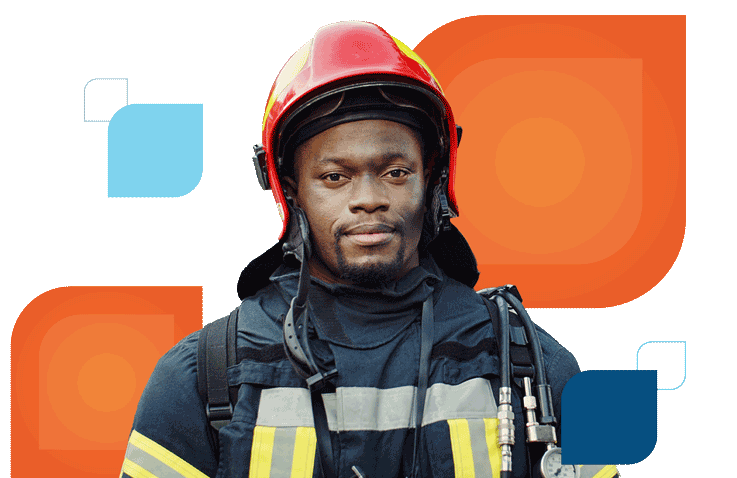Mental Health Training for First Responders
Firefighters and EMS personnel face daily stress and trauma that can impact their health, performance and relationships. Equip them with tools to care for themselves and those they serve.
Find Training Train a Group
How Mental Health First Aid Helps
Many first responders experience high rates of mental health challenges including PTSD, anxiety and depression. Their jobs are demanding and often dangerous. With our evidence-based, nationally recognized training, you can help them build the skills to cope.
Prevent Burnout
93% of first responders believe that mental health is as important as physical health. Get them help early to prevent burnout and other challenges.
Build Trust
Your colleagues don’t have to deal with their struggles alone. Talk openly about mental health — 89% of first responders would feel more comfortable asking for help if you did.
Reduce Stigma
Many first responders fear they’ll face repercussions if they admit they’re struggling. Foster a workplace culture where it’s OK to open up.
Increase Mental Health Literacy
First responders face challenges their loved ones may not understand. Learn the signs of depression, PTSD and suicidal thoughts.
Step in With an Effective Plan
Firefighters are more likely to die by suicide than in the line of duty. Learn our MHFA Action Plan (ALGEE) to know what to do when someone shows the signs.
Support Recovery
Our training teaches that recovery is possible and helps improve everyone’s mental wellbeing.
Who Should Take MHFA?
- Firefighters
- EMS personnel
- Family members of fire/EMS personnel
What You Learn
In this full-day training, you’ll learn how to address mental health and substance use challenges in first responders. Topics include anxiety, depression, PTSD, suicide and addiction. You’ll be able to:
- Understand the impact of mental health and substance use challenges on the wellbeing of first responders.
- Know the risk and protective factors specific to working in Fire and EMS.
- Explain and use the MHFA Action Plan (ALGEE) in scenarios designed for first responders.
- Address stigma and explain that recovery is possible.
- Ensure safety and privacy during conversations.
- Choose methods for self-care for yourself and others.
Michael Allora
Retired Deputy Fire Chief, Clifton (N.J.) Fire Department
“Since completing training, I’ve noticed that there is more conversation about mental health, and that is helping reduce the stigma associated with behavioral health issues. People at our fire department are using what they learned in their personal lives as well as their professional lives.”
Read more about Michael’s experience being a Mental Health First Aider.
